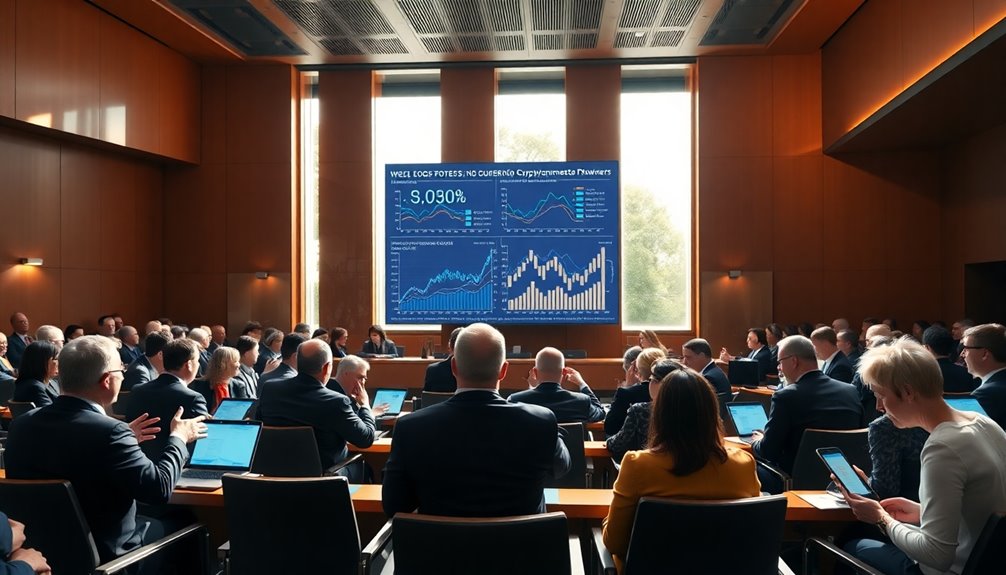As you look at the evolving landscape of technology, it's clear that U.S. lawmakers are shifting their focus toward AI, cryptocurrency, and decentralized finance. With bipartisan support growing, they're pushing for regulations that could reshape the future of these industries. But what does this mean for consumers and businesses alike? The intersection of innovation and regulation raises crucial questions that demand further exploration.

As U.S. lawmakers increasingly recognize the economic potential of AI, crypto, and DeFi, they're actively pushing for clear regulations to harness these technologies. You might notice that their growing interest stems from the significant impact these innovations could have on the economy. With bipartisan support emerging, efforts are underway to establish a regulatory framework that provides clarity to businesses operating in these spaces. This isn't just about rules; it's about keeping crypto firms from moving overseas to seek friendlier environments.
U.S. lawmakers are recognizing AI, crypto, and DeFi's economic potential, pushing for clear regulations to ensure business clarity and retention.
At the state level, legislators have introduced over 200 bills aimed at ensuring transparency and ethical use of AI. You'll find that these initiatives address critical issues, such as preventing AI from being used to deny health insurance claims and prohibiting the use of deepfakes. In advertising, transparency in AI applications is becoming a cornerstone of responsible practices. Ethical hacking is also gaining attention as a way to enhance cybersecurity measures related to AI applications.
States are even studying how AI affects local resources like energy and water, which could have long-term implications for sustainability.
When it comes to crypto, significant hearings are scheduled to discuss its role in the U.S. economy. You may have heard about the concerns regarding the debanking of crypto firms, which lawmakers are addressing head-on. New legislation is also on the horizon, particularly focused on regulating stablecoin issuers, including discussions related to the upcoming Senate Banking Committee's digital asset hearing.
The formation of a bicameral working group shows the urgency of establishing clear regulatory guidelines, as these rules could prevent firms from leaving the U.S. altogether.
DeFi is another area where lawmakers are making strides. The potential for decentralized finance to transform financial services is drawing attention, leading to proposed legislation supporting its development. Consumer protection remains a key focus in DeFi transactions, ensuring that users can engage with these technologies safely.
With clear regulations, you could see substantial growth in DeFi markets, further integrating them into the financial ecosystem.
AI and crypto aren't just separate entities; they can synergize to create new opportunities. For instance, AI can enhance blockchain-based autonomous agents and improve prediction markets for governance.
However, scalability remains a challenge as these technologies intersect. As lawmakers navigate this landscape, they're also influenced by the political climate, including campaign spending from the crypto industry and the push for a pro-crypto agenda.
What's clear is that a comprehensive regulatory framework is developing, and you'll want to stay informed as these changes unfold.









